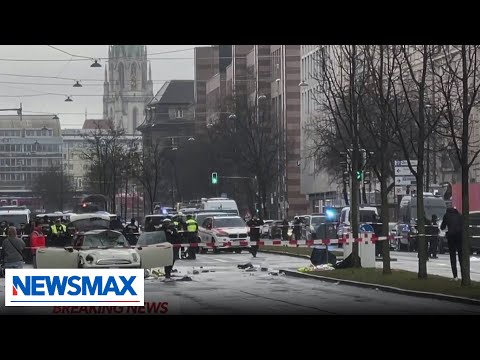In a shocking turn of events, Munich, Germany has been the scene of a chaotic incident that left 28 individuals injured. This incident unfolded as a car plowed into a crowd of pro-union demonstrators. It was a day before world leaders, including U.S. Vice President JD Vance, were set to converge in the city for the much-anticipated Munich Security Conference. The sight of chaos erupted amidst preparations for high-level talks, making this story even more unsettling.
The vehicle at the center of the drama was a Mini Cooper, which ended up with a smashed windshield and surrounded by debris from the demonstration. Eyewitness reports painted a vivid picture of the upsetting scene, where police swiftly responded to the car’s approach. Just moments before the car veered into the crowd, police acted to intercept the vehicle. However, instead of stopping, the driver accelerated, causing mayhem among the demonstrators. As police moved to detain the suspect, they discharged a warning shot—an indication of the gravity of the situation that unfolded before them.
Authorities have identified the driver as a 24-year-old Afghan asylum seeker. While police have classified this incident as a suspected attack, they have assured the public that it is not connected to the upcoming Munich Security Conference. Nonetheless, events like these are increasingly alarming to many in Germany, where similar incidents have taken place over the past few months. Just two months earlier, a Syrian national drove into a crowd at a Christmas market, resulting in six fatalities. The public’s tolerance for these types of events is waning, and the urgency to address immigration concerns is growing.
The backdrop of this incident is a tense political landscape in Germany, where immigration policies are under intense scrutiny. The rise of the AfD party, once considered fringe, is reflective of widespread public concern regarding the current immigration situation. With the upcoming federal elections on February 23rd, many Germans are prepared to vote for change, as it appears that a significant segment of the population is no longer willing to accept violence and chaos as the new normal.
As the world leaders prepare to engage in discussions about security and stability at the Munich Conference, the unsettling reality is that their host city is grappling with deep social issues. The community’s collective anxiety is palpable as many hope for decisive action against perceived unchecked immigration. While the conference aims to foster cooperation on global matters, the consequences of recent events indicate that such collaboration must also address the urgent concerns of the German populace. For now, the city holds its breath, wondering what solutions will arise from the intersection of politics, security, and societal well-being.



